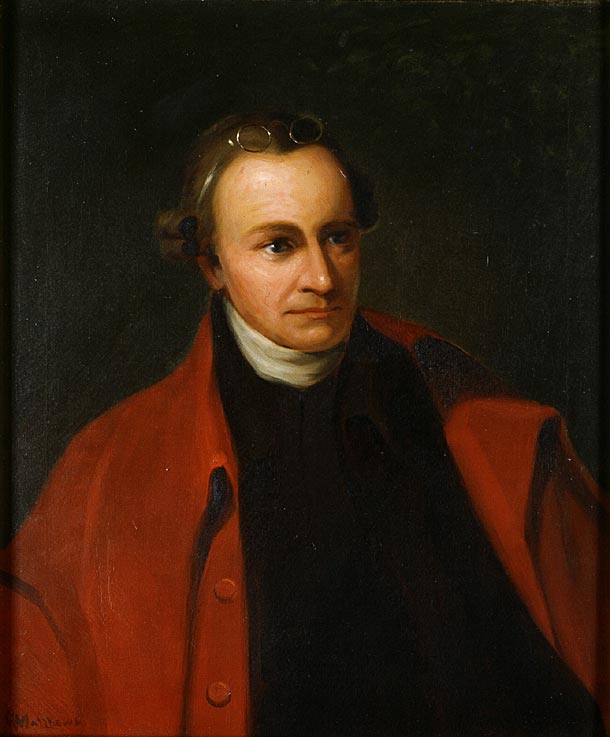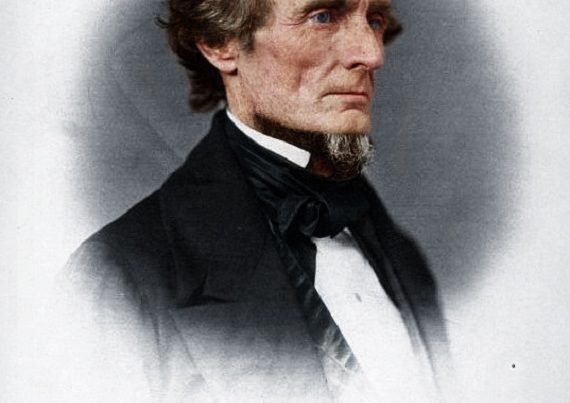One of the greatest American statesmen, Patrick Henry, was born on this day (May 29) in 1736. Jefferson once said that Henry single-handedly delivered Virginia to the cause of independence. He also said that Henry was the laziest reader he knew, and modern critics consider Henry to have been nothing more than a sliver-tongued, hayseed demagogue. Certainly, he did not have a stellar education, and his acumen as a merchant and farmer were suspect at best. But Henry had a gift for oratory and he maximized his talent, first as an attorney, then as a young firebrand member of the Virginia House of Burgesses, and later as a leader in Virginia politics, both during and after the American War for Independence. Jefferson was, in fact, jealous of Henry’s gift of public persuasion. Most were. Henry did not always win the debate, and he often took great risks to protect Virginians from all types of schemes, particularly those which originated in government. He called his stand against power manly. We should, too.
Henry considered the ancient liberties of Englishmen, the traditions of their fathers, codified by blood, steel, and vigilance over generations, to be the pillars upon which good government rested. His famous speech at St. John’s Church in Richmond in 1775 was more than a call for the preservation of liberty; it was an appeal to tradition. “I have but one lamp by which my feet are guided and that is the lamp of experience. I know of no way of judging of the future but by the past.” Liberty was nothing more than a word to describe the political systems and the social order to which Henry and his compatriots were accustomed. They did, after all, live in the freest land in the world, and the moment the customary relationship between the freemen and the government changed, Henry was willing to call for action, first through petition, then by arms. His motivation was to arrest unconstitutional innovations in government, not to expound upon the general “rights of man.” Henry was no egalitarian philosopher. He was a man of action in a time of action.
His political career after the War echoed his efforts in leading to independence. Henry believed Northern commercial interests to be a threat to the agrarian South, particularly when a cabal of Northern States attempted to secretly negotiate a treaty with Spain which would have surrendered American navigation rights to the Mississippi River. Union, in his mind, meant that each State—and by default each section—should benefit equally from the arrangement, and no one section, State, or people should be unjustly burdened by the other members of the confederation. Decentralization, then, served a purpose. Virginia could protect its people from money-grubbing Bay Staters, and the people of Pennsylvania, if they chose, could be free to enact mercantile schemes without interference from agrarian North Carolina. After all, the happiness, safety, and well-being of Virginians were protected by their own constitution and bill of rights, written and ratified before the Article of Confederation had been proposed and adopted.
Henry was asked to lead the Virginia delegation to the Philadelphia Convention in 1787. He declined, thinking he “smelled a rat.” When the Constitution was brought back to the people of Virginia for ratification, Henry led the charge against it. His June 5, 1788 speech should be required reading for every American. Henry declared that, “if twelve states and a half had adopted it, I would, with manly firmness, and in spite of an erring world, reject it…” and chastised proponents of the document for their lack of foresight. “You are not,” he said, “to inquire how your trade may be increased, nor how you are to become a great and powerful people, but how your liberties can be secured; for liberty ought to be the direct end of your government.” He cautioned his fellow delegates not to rush to judgment. History had shown “revolutions like this have happened in almost every country in Europe; similar examples are to be found in ancient Greece and ancient Rome — instances of the people losing their liberty by their own carelessness and the ambition of a few.” And though he recognized that the Constitution may prevent “licentiousness,” Henry warned, “there is another thing it will as effectually do — it will oppress and ruin the people.”
Henry railed against congressional power over the militia and by default the potential for the central authority to disarm the people, and against the executive, an office he considered to be little more than a thinly veiled monarchy. Most of this speech, however, was an appeal to the people of Virginia, both present and future, to resist a headlong charge to tyranny. “The voice of tradition, I trust, will inform posterity of our struggles for freedom. If our descendants be worthy the name of Americans, they will preserve, and hand down to their latest posterity, the transactions of the present times; and, though I confess my exclamations are not worthy the hearing, they will see that I have done my utmost to preserve their liberty; for I never will give up the power of direct taxation but for a scourge.” Prophetically, Henry warned that according to the Constitution, “the preservation of our liberty depends on the single chance of men being virtuous enough to make laws to punish themselves.” Time has proven his fears were justified.
Henry’s closing remarks emphasized that the Constitution without amendments violated the principles of 1776, and he feared that even with amendments the people and the States would not be sufficiently protected against centralization and tyranny. He hoped “that the spirit which predominated in the revolution is not yet gone, nor the cause of those who are attached to the revolution yet lost.” Sadly, that spirit has long been buried, and Henry’s sagacious remarks have gone unheeded by subsequent generations. Yet, it is not too late to rekindle Henry’s devotion to liberty and to the ancient traditions that defined his generation. Let us honor his birthday with a toast he would support, “To those who fight for the Principles of ’76, present and future, and to the eternal principle of liberty.”







